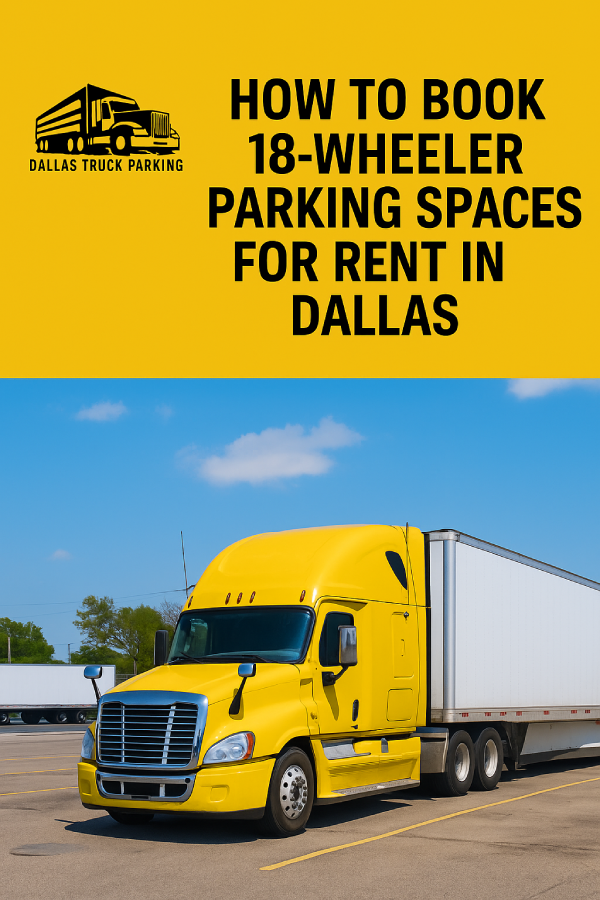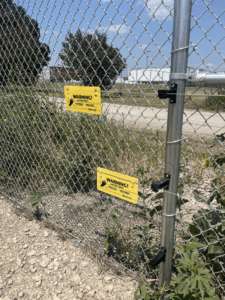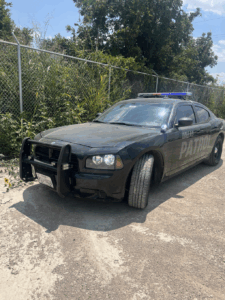If you drive an 18-wheeler, you already know the challenge. Long days on the road, tight schedules, and then comes the final headache: finding a safe, legal place to park.
Dallas might be a majr hub for logistics, but that doesn’t make truck parking in Dallas any easier.
Whether you’re an owner-operator or manage a small fleet, booking a secure, accessible parking spot for your semi shouldn’t feel like winning the lottery. Good news? It doesn’t have to.
Here’s a simple guide on how to book 18-wheeler parking spaces for rent in Dallas, without the runaround.
Why Renting a Dedicated Truck Parking Spot Is Worth It
Before we get into how to book, let’s talk about why you should.
Parking is a big rig just anywhere isn’t just convenient, it’s risky. From city ordinances o theft and ticketing, the cost of parking in the wrong place adds up quickly.
Here’s what you get when you rent:
- Security: Most truck lots come with fencing, gates, cameras, and sometimes on-site people.
- Legal peace of mind: No more guessing if your vehicle will be towed or ticketed.
- Convenience: Easy in-and-out access, often with space for loading/unloading, repairs, or even fuel stops.
You can be in between hauls or parked for the weekend, having a reserved spot gives you one less thing to worry about.
Related: Why Truck Drivers Are Struggling to Find Parking Lots & How to Solve It
How to Book 18-Wheeler Parking Spaces for Rent in Dallas, TX
1. Know What You Need
Start with the basics:
- Are you looking for short-term or long-term parking?
- Do you need overnight only or monthly storage?
- Want extra features like electric hookups, lighting, or surveillance?
Knowing what you need will narrow your search and prevent overpaying for extras you don’t actually use.
2. Search for Local Options (The Smart Way)
You can always Google “Semi Truck Parking Rental Dallas, TX,” but that only gets you so far. Look for:
- Dedicated truck parking platforms like Truck Parking Club, TruckPark, or TruckerPath.
- Commercial storage lots that look after larger vehicles.
- Private landowners are offering spaces via apps or classified listings.
Pro Tip: Look for reviews. Real driver feedback can tell you if the spot is as good, or bad, as it sounds.
3. Check for Legal Compliance
Dallas has zoning laws. Not every space is legal to park a semi on, especially overnight.
So, even if someone offers you a great deal in a random lot, check:
- It’s zoned for commercial truck parking
- It doesn’t violate HOA, neighborhood, or city ordinances
Reputable lots or platforms will be up-front about this. If they’re not, that’s a red flag.
4. Compare Features & Rates
A lot of drivers just pick the cheapest option. That’s a mistake.
Instead, compare based on:
- Security: Is it fenced? Lit? Monitored?
- Accessibility: Is it near major routes like I-35E, I-20, or Loop 635?
- Hours: 24/7 access or limited?
- Extras: Restroom access, repair shops nearby, pull-through spots?
Then compare prices. Expect to pay:
- $10-$30/night for daily spots
- $120-$300/month for long-term parking
Rates are different by location and facilities.
5. Reserve Your Spot
Once you find a place that checks your boxes, it’s time to book.
Here’s what most lots of platforms need:
- Your vehicles size and license plate number
- Type of parking (daily, weekly, monthly)
- Insurance information (sometimes required)
- Payment upfront or deposit
Many sites offer online booking with instant confirmation. Others may ask for a quick call or site visit.
Either way, get a receipt or confirmation. If it’s not written down, it didn’t happen.
Related: Commercial Truck Parking Dallas, TX: Monthly Rental vs. Daily Rates – Which Saves More?
Popular Areas for Truck Parking in Dallas, TX
Some of the busiest (and most convenient) areas to look for truck parking in Dallas:
- South Dallas – Easy access to I-20 and I-45, common for industrial zone parking.
- Grand Prairie – Close to the DFW corridor and shipping centers.
- Mesquite & Balch Springs – Reasonable and less congested.
- Irving and Lancaster – Great for short-term parking near big trucking routes.
Wherever you choose, prioritize lots near highways for less detours.
Tips to Get the Best Parking Experience
Renting a space is one thing. Getting the most out of it? That’s where these small details matter.
- Book in advance: if you’re looking near major highways or industrial areas. Good spots go fast.
- Double-check access hours: Not all lots are open 24/7. If you run late, you don’t want to find a locked gate.
- Ask about trailer-only rules: Some places won’t let you drop your trailer and go. Make sure you’re not hit with surprise fees.
- Keep your info handy: Lot managers might need to reach you if there’s an issue. Having the right contact details on file helps everyone.
People Also Ask
- How much does truck parking in Dallas usually cost?
On average, between $150 to $300 a month. It depends on how close you are to major routes and what features the lot offers.
2. Is it okay to park a semi overnight on the street?
Not in most of Dallas. The city has restrictions, and enforcement is real. Safer (and smarter) to rent a legal spot.
3. Are there lots with real security?
Yep. Plenty of them. Look for fenced-in areas with cameras, lighting, and even on-site staff if you want extra peace of mind.
4. What if I need parking for more than one truck?
No problem. Many places in and around Dallas offer multi-truck spots, and you might even score a better deal for booking more than one.
Final Take: Don’t Wait Until You’re Stuck on the Shoulder
If you’re staying in Dallas, don’t leave parking to chance. A good spot isn’t just about location, it’s about keeping your truck (and your schedule) safe.
Take five minutes to plan ahead, find a space that works, and lock it in. It’s one less thing to worry about when you’re already juggling routes, deadlines, and drive time.
Trust us, your future self will thank you.
Related: How to Choose the Right Commercial Truck Parking for Your Needs






